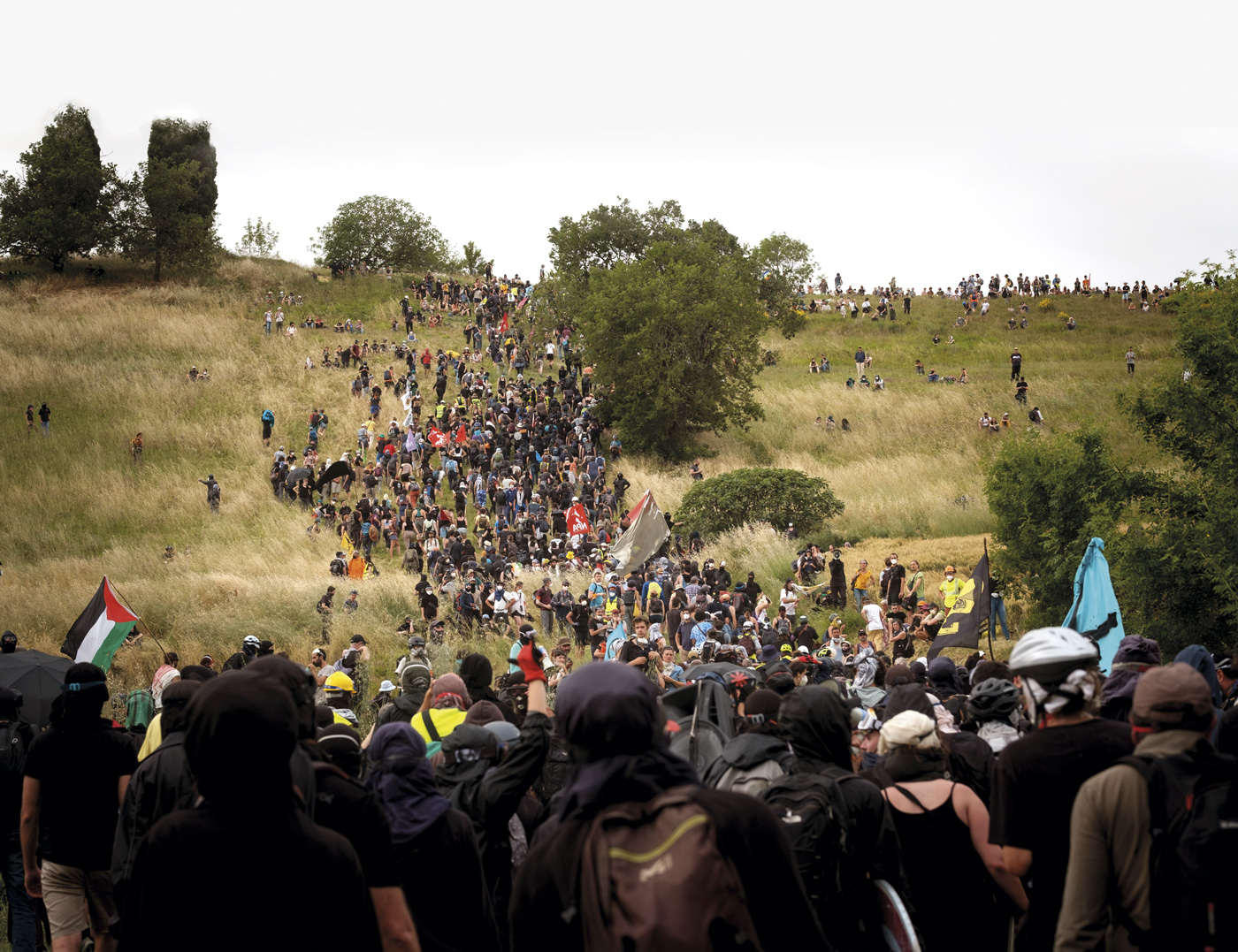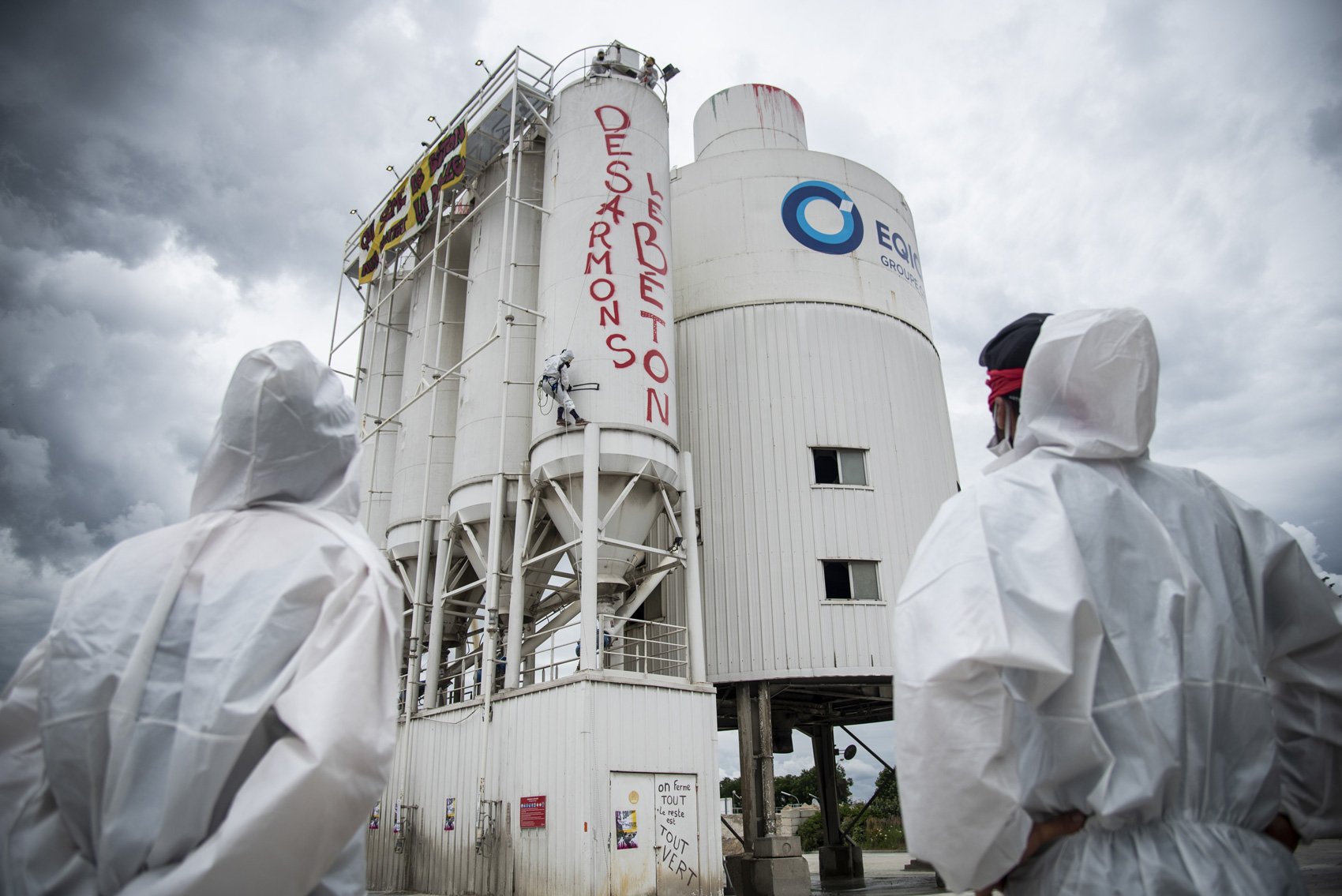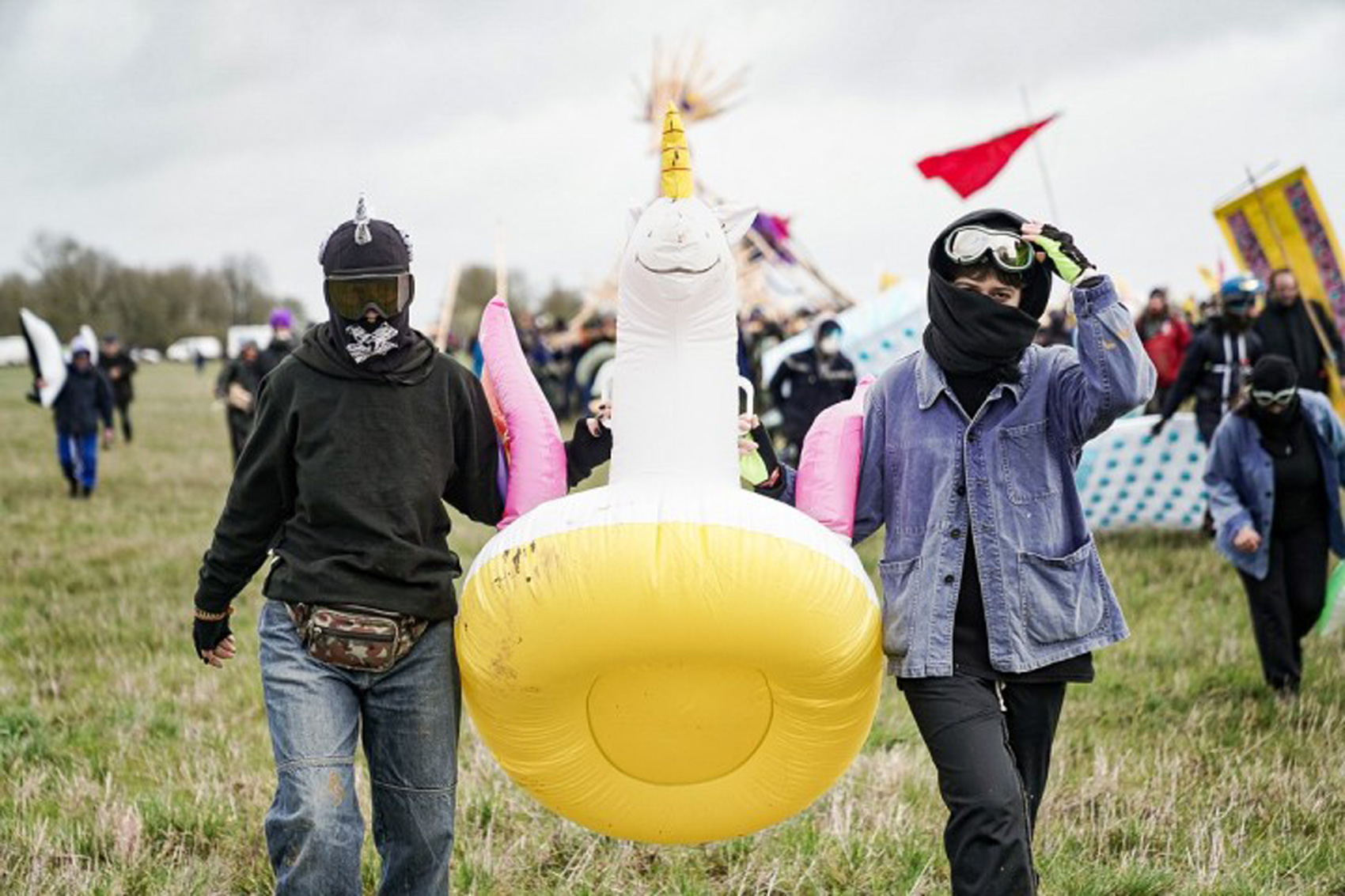The movement against the agro-industry and its mega-basins or major abrevaderos is spreading and hardening in France
- The large vents are macro-projects that lead the accumulated water in the ground, streams and streams of rain to a few intensive crops. There are a few in operation, there are many on the way and in total they will be a thousand in a short time through the French rural areas. They do not want it, neither the popular growers, nor the citizens around them, nor the environmentalists, and in recent months an opposite movement is flourishing. Taking a step further, disobedience and direct action have begun to be channelled, without authorization and facing the police, dismantling infrastructures.

They have a warning everywhere: this summer we suffer from constipation. Underground ponds are to a lesser extent than odors and to a worrying extent, it is true. The reserves are covered in autumn and winter, from October to February, and at the level of France, say, 70% of the normal range has been met.
In this context, the environment is warming up in several rural areas of France, turning the mega-bassines projects or giant lagoons into conflicting conflicts. These are huge artificial reserves of water to ensure the watering of monocultures. These are plasticised areas of about 15 metres deep and a width of between eight and eighteen hectares – range of ten football fields – which have the function of accumulating water throughout the year and then watering in summer. Officially, it is a matter of collecting the accumulated rain, but it is ultimately the groundwater and the watering down that mostly comes with water pump systems.
The agricultural syndicate Conféderation Paysanne, which is part of this ELB of the Basque Country, the popular movement called Alzamiento por la Tierra and the collective Bassines non mence (Uraskak, ez eskerrik asko) are the collective in the front line of this struggle, a movement that is opening up and growing day by day. For example, 7,000 people met at the end of March in the Rochenard village of the department of Deux-Sèvres. Crossing the devastating gases, they overcame the police barrier and managed to prevent the works by dismantling a water bomb.
It is clear from the outset that the issue is not a peasant war: “From the outset we have made it clear that this struggle is not between good grower and bad farmer, what interests us is agro-industry. The person questioned in the previous protest never owns 1,200 hectares and 20 companies,” says Lena, from the collective Alzamiento por la Tierra, to the media La relève et la peste.
For the benefit of agro-industry, in total they have a thousand mega-bassines to be built by France. It's nothing. Therefore, the mobilization is placed a bite higher, systematizing the response and at all times joining the works area with the objective of hindering the works, since if the ones in progress are executed, the ones that come later would open the way.
“Water must be on the ground or on streams. In order to ensure good water management, every effort must be made to ensure that water is watered in the
ground” Christian Amblard
The manifesto signed by some 40 structures reads: "Once a construction site is started, we encourage you to meet us three weeks later, to join us more than ever to make the demonstration and stop the works. We will stay enough and we will return whenever necessary." This strategy is called civil disobedience and direct action, or sabotage... and stands out for its broad support. The signatories include trade unions, political parties, environmental associations, anarchists and other collective citizens. The motor demanded of the French State does not come, and it is therefore in a disobedience arrest determination.
More than a solution, a plan to make the situation worse
Ecologically, these mega-bassines are considered “absurd”. Christian Amblard, an expert researcher in hydrobiological systems at Radio France, explains: “It makes no sense to build surface warehouses. The water collected should be on the ground or on the regatta. (...) In order to ensure good water management, every effort must be made to ensure that water is watered in the soil.” This expert claims that evaporation results in a loss of 20% and 60%. In other words, far from being a means of combating drought, the problem is increasing.
Furthermore, the struggle includes a political reflection: these mega-projects are ways to privatise a bathroom that should be common to all. Nicolas Girod, spokesman for the Confédération Paysanne trade union, wants to make it clear that they are not opposed to watering, but to that accumulation of water: “There we have the privatization of a common good. We oppose these mega-basins, because they favor a single cultivation model, an intensive cultivation”. Currently, only some have the use of this accumulated water. For example, the seventeen projects of the Deux-Sèvres department could only be allocated to 220 farms, totaling 5,371 farms. What clues don't, about hundreds and hundreds of acres of land they eliminate.
It says that we have to decide collectively and collectively what to do with water, determining that we need activities that go to the direction of food sovereignty. Girod does not accept the arguments of supporters of mega-bassine as a way to combat the food shortage caused by the Ukrainian war. “He has been speaking for 70 years. We are now talking about food sovereignty, but the logic behind it is the same: they need GMOs, animal meal, public money, large accumulations of water, all to end hunger. But for years there have been countries in distress and industrial cultivation does not solve the problem. The challenge is not to produce more, but accessibility for all.”
Model supported by the State
These mega-projects are supported by the State, with 70% of the expenses paid with public money. In this sense, the State once again constitutes a minority and a concrete model of cultivation: the intensive and industrial model. Consideration has been given to reducing the use of plant protection products and/or planting barriers. “Reflection... we are in a true green-washing... The condition of ‘reflection’ reflects everything...”, at the initiative of the collective Bassines non mτ.
They say these mega-projects are a way to deal with the climate emergency. The problem is that single-crop plants require huge amounts of water – the clearest example is maize – and in order to really tackle drying or climate change, in addition to the production model, they should change production, ensuring more biodiversity. The Ministry of Agriculture argues that “without water there is no agriculture”, but it should be remembered that 95% of the production advances without irrigation, that is, only thanks to rains.
“We have the privatization of a common good. These mega-bassines favor a single cultivation model for the intensive model”
Nicolas Girod
In addition to direct action, opponents use the path of justice and the European institutional framework. Suppose the collective Bassines non mc.c. has come to the European Commission because, according to this, nine directives are blistered. The European Commission responds that it takes seriously the call for “concern for the protection of water”, extending to the French State the requirements of improving groundwater control, presenting “transparently” the financial and ecological cost of these projects and guiding measures against “over-accumulation”. A Court of Appeal has also confirmed the illegality of several giants. “These legal battles are the ones that must be brought, but unfortunately, in most cases, the sentences come too late and some fat works are already underway,” says activist Julien Le Guete.
It seems that there are more and more obstacles in the agro-industry, which means that in its beginnings more and more neighboring associations are emerging from the administrative boards that manage projects. Yes, the movement is swollen and the French Government does not seem to measure its potential. Alerts the Bassines non mgr movement: “Thus, the mega-bassine will be added to the path of the struggles of Larzac or Notre-Dame-des-Landes.”
Outside the police state! They sing through the explosions of tear gas. Committed young people, amateur militants, covered faces, or not, clowns, musicians, trade unionists and politicians, doctors with a helmet, farmers on tractors... Both in the countryside and in the city,... [+]
The French State Council has decided that the Earth Survey should eliminate the destruction of the network. Although it is confirmed that this movement causes "violence against goods", the legalization would not be "an appropriate, necessary and adapted measure". It is good news for... [+]
Duela astebete hamabost ekintzaile ekologista atxilotu zituen Poliziak, Frantziako zuzendaritzaorde antiterroristaren aginduz. Horietarik bi euskal herritarrak ziren, baiones bat eta hendaiar bat, biak Tolosan bizi direnak.























